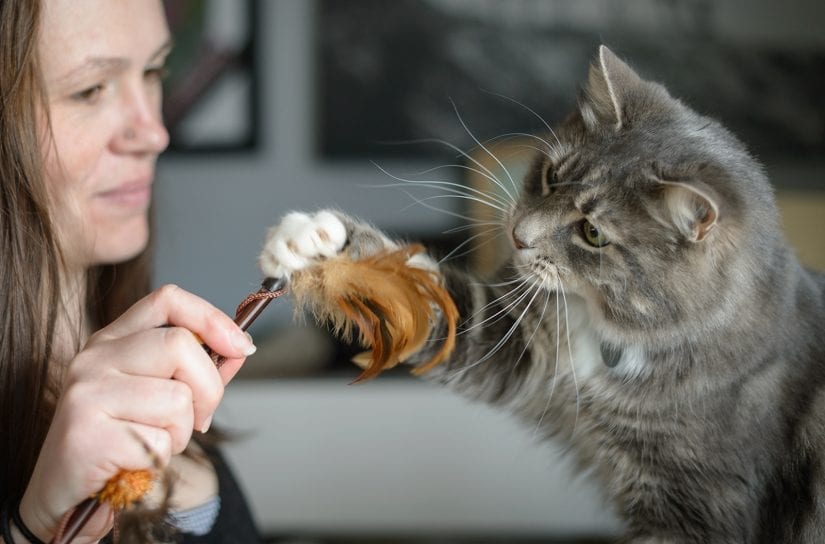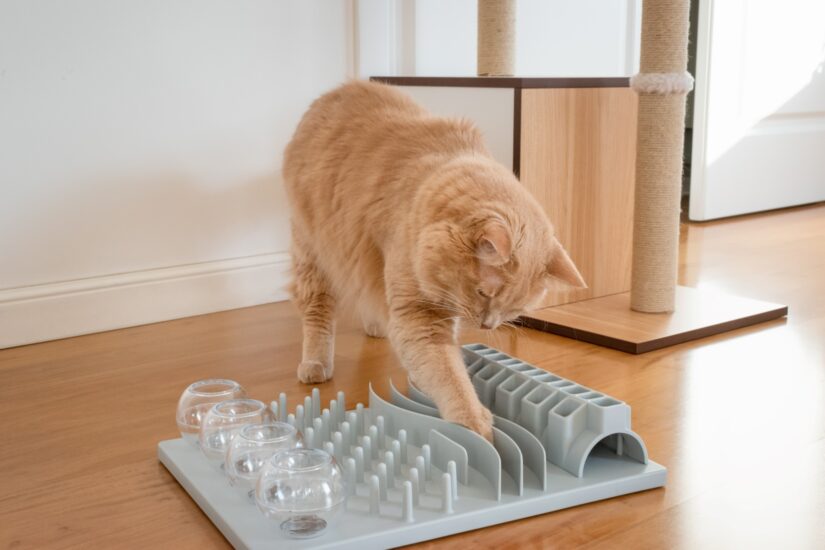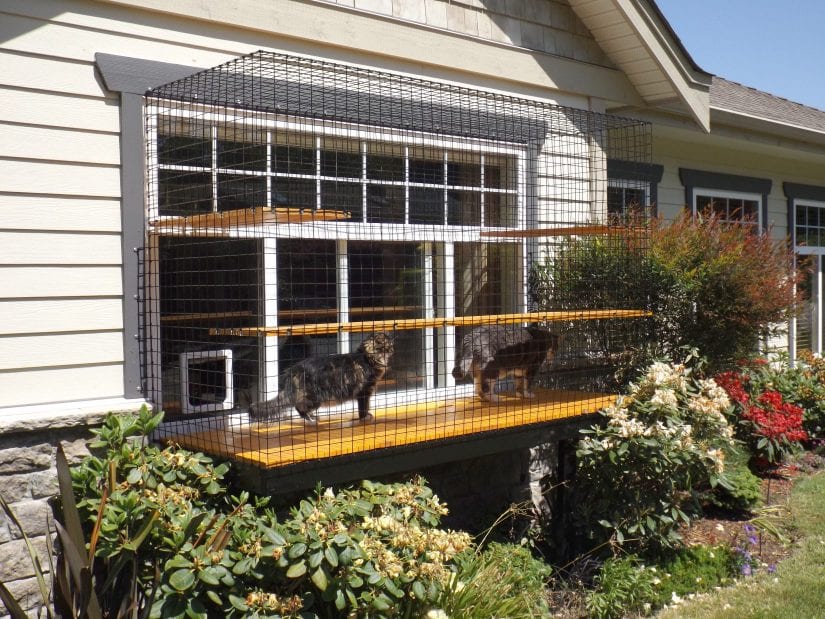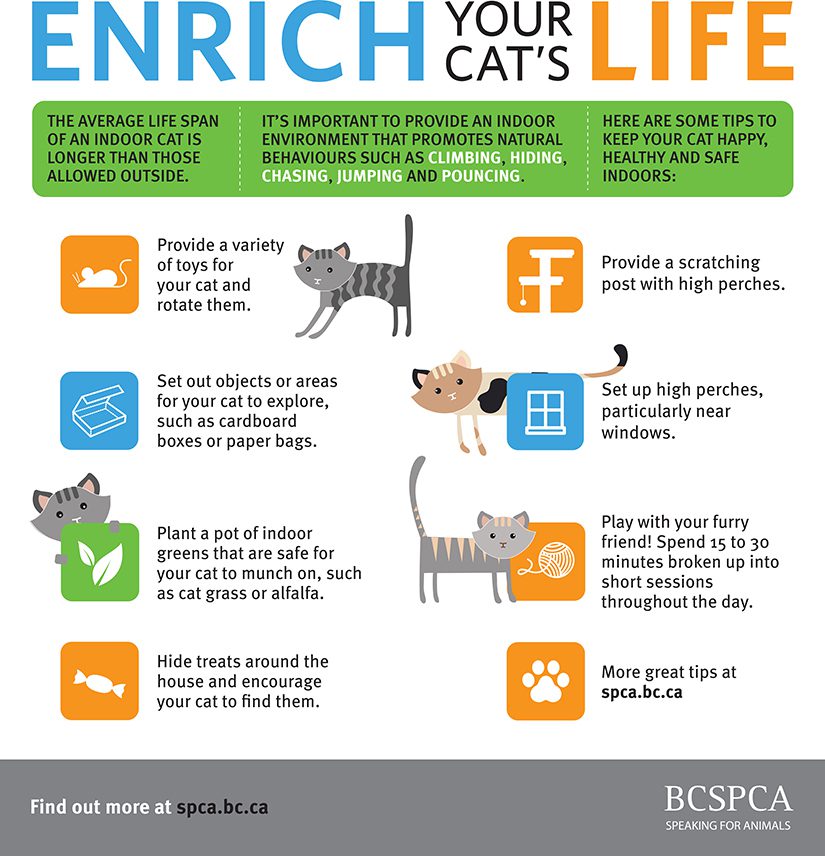There’s a long-standing belief that cats are low-maintenance, independent pets. In fact, the opposite is true. Cats need a stimulating indoor environment to keep from becoming bored and frustrated.

Indoor enrichment tips
Living indoors is safer for cats because they don’t have to contend with things like traffic, temperature extremes or predators. However, compared to the outdoors, an indoor environment can be very monotonous. As cat guardians, it’s essential to provide enrichment to engage their bodies and brains. Here are some ways to do just that:
- Provide a variety of cat toys that are safe and stimulating, such as feathery and furry toys that move and feel like small prey or toys filled with catnip (just be aware that catnip can make some cats aggressive or hyperactive).
- Provide a few scratching posts of different designs and materials. Your cat may especially like one with high perches.
- Create perching areas (PDF) near windows so your cat can observe the world and open screened windows to let fresh air in.
- Set out cardboard boxes or paper bags for your cat to explore.
- Turn on a dripping tap.
- Place a ping-pong ball in an empty bathtub for your cat to play with.
- For tactile stimulation, lay down a soft, textured mat sprinkled with catnip for your cat to roll on.
- Try a simple puzzle feeder to encourage your cat to work for their food.

- Set aside time each day to play with your cat. Bring out the hunter in them by tossing toys to chase or using a wand toy to mimic the movements of a small prey animal.
- Use reward-based methods (food!) to train your cat to touch a target (PDF) and other tricks.
- Plant a pot of indoor greens, such as cat grass, for your cat to munch on.
- Hide treats around the house and encourage your cat to find them.
- Because cats hunt with their ears as well as their eyes, try out toys that make buzzing noises. Reward your cat when they pursue the sound.
- If your cat tends to keep you up at night, schedule a few interactive playtimes during the evening, then feed them a main meal right before bed. You can also use a timed feeder to dispense one or two small meals during the night.
Providing an indoor environment that encourages natural behaviours is crucial to cat welfare — not only hunting behaviour but climbing, hiding, scratching and perching behaviours as well.
Safe outdoor access for cats
While the BC SPCA strongly recommends that guardians keep their cats indoors, cats can benefit from controlled outdoor access — particularly those who still display frustration despite enrichment efforts. Controlled outdoor access also has the advantage of preventing cats from preying on wild animals such as birds and baby rabbits.
Should your cat have a strong desire for the outdoors, there are a few ways to do this safely:
1. Supervise your cat when they go outside
If you have access to a fenced yard, you can sit outside on nice days and watch them explore. You can even make your garden more cat-friendly.
2. Build your cat a catio
Catios are outdoor enclosures that can allow cats to come and go as they please. The BC SPCA has three simple catio designs to get you started, plus ideas on decorating your catio.
3. Train your cat to leash-walk
Some cats are confident enough to enjoy being on a harness and leash. You just need to introduce them to the activity gradually, using reward-based training.

An enriched indoor environment with safe outdoor access should make for one happy cat!
Resources:
- Indoor and outdoor cats
- Extra tips: Ask the SPCA: Indoor cat enrichment
- General cat content: Caring for cats

